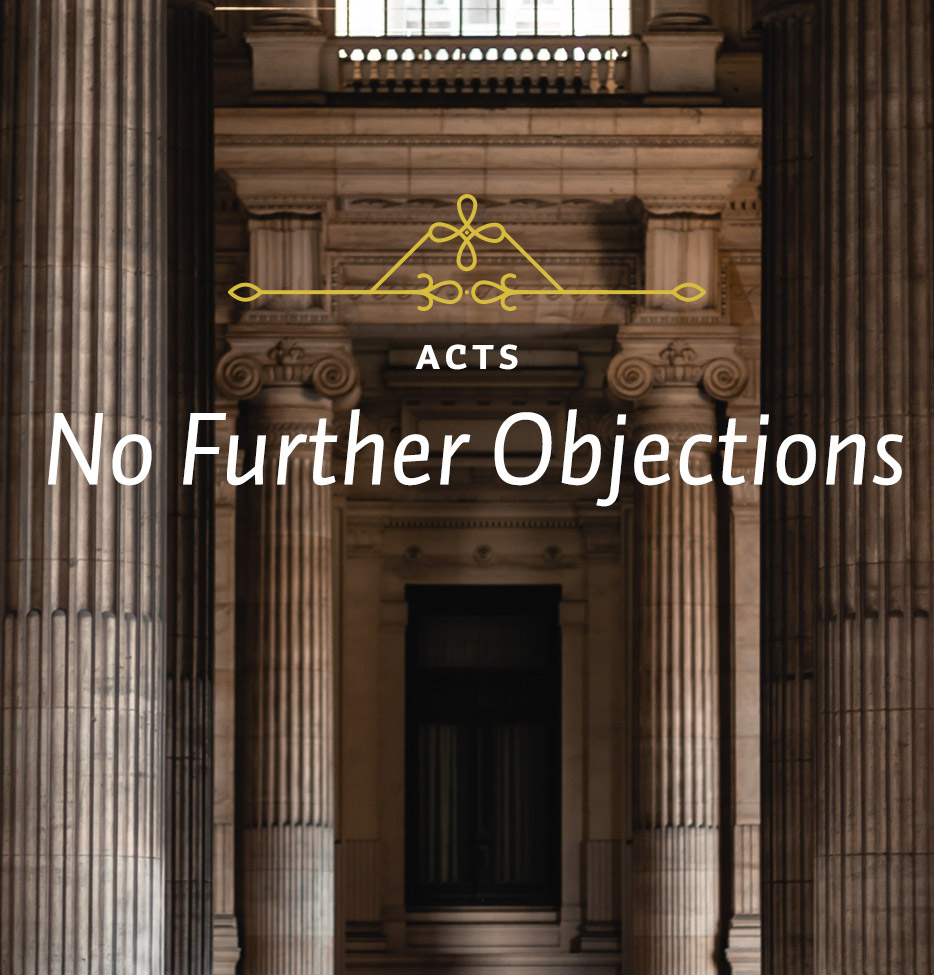In today’s study we continue our discussion of the question: How does a person come to know the will of God?
4. Peter confirmed his decision by the parallel convictions of the others he had brought along (v. 12). The Old Testament required two or three witnesses for the establishing of any fact (Deut. 19:15). Peter probably figured, “To be safe, I need at least three.” But this was a very serious matter. So he may have said, “And to be doubly safe, I had better have six.” So he brought along six friends. Confirmation by others is a valuable thing when we are talking about the will of God.
There is an illustration in the way we talk about an individual’s call to the ministry of the Word in a Presbyterian church, and probably some others too. It is customary for those who are examining a candidate to look for three things.
First, the individual should have a sense of God’s calling himself. No one can tell somebody else what the will of God is for them. The person must know that God has called him. This is a subjective matter, and we speak of it as the internal call.
Second, the call should be confirmed by the presence of the necessary abilities or gifts. If a man says, “I am called to be a preacher,” but is so shy or stammering that he cannot speak or is so mentally deficient that he cannot read or understand the Bible, most people would rightly conclude that his sense of call should at least be reexamined.
Third, there should be a confirmation of the call by the church from which the individual comes and by the presbytery. That is what ordination is about and why a minister goes through various tests before he is approved for ordination. There has to be a sense that this is not just a matter of an individual call (though that is important and necessary), but somehow also that it is confirmed by other Christians. These others should be concerned about it and should be praying it through with the individual.
This point was an important one in Peter’s experience. He had gone to Caesarea, believing that the Lord had led him to present the Gospel to the Gentiles. Others were with him. If Peter had been the only one who saw the leading of the Lord in this way, he probably would have said, and rightly, “I had better think this through again. None of the others agrees with me.” But that is not the way it happened. Peter’s friends experienced the same things and saw what had happened in the same way. So he was not acting alone in this important matter. Their agreement was a significant confirmation of God’s leading of him personally.
5. Peter found the ground prepared (vv. 13-14). This was also a circumstantial matter, but it seems to have meant something special to Peter. He was rightly impressed with how the Gentiles were ready, willing, and waiting to hear the Gospel message.
This does not mean that if Peter had not received a good hearing he would not have been led to that point of his life by God. Lack of immediate success is not proof that one has taken a wrong step in trying to follow after God. Sometimes God leads us into difficult situations. Missionaries in difficult areas of the world sometimes spend many long years before they see even an initial convert to the faith. Difficulties do not mean that God is not leading. But if, when you arrive in a place you find that the ground is prepared and people respond to the Gospel, that obviously is a great confirmation.
Peter had difficulty preaching in Jerusalem. He had tried to preach to the Sanhedrin, which was opposed to Jesus. These men arrested and beat the apostles. The apostles were not out of the will of God then, just because they had difficulties. But here the household of Cornelius was waiting and eager, and that was an important encouragement.






